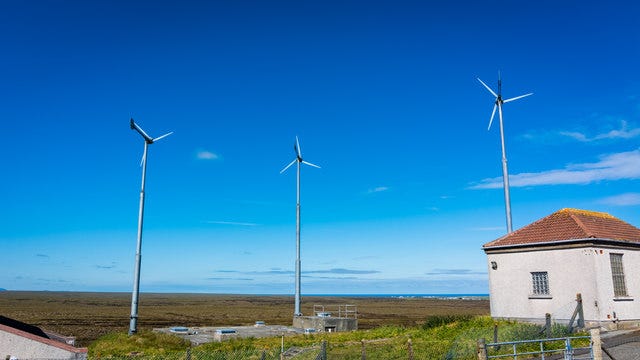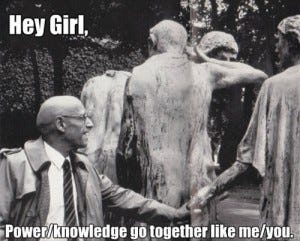Recognition should be at the heart of the energy transition
Plus: build your own solar water heater!
Dear people,
welcome to the SLE, for your dose of inspiration on how to do sustainable energy transitions. I’ll be experimenting with a different format starting today, to manage the amount of time I’m putting into the letters and reduce the amount of effort it takes you to take home your dose 🤓.
On my reading list today:
“How modern are renewables? The misrecognition of traditional solar thermal energy in Peru's energy transition.” By Alena Israel and Mathias Jehling. Published in Energy Policy(2020).
The Gist
The article offers a tale of what happens when you don't take local givens seriously because of inequalities in power, class, and ethnicity.
Almost a hundred years ago, a solar water heater was invented in the mountainous and radiantly solar town of Arequipa, Peru. After a design upgrade in the 1980s, it became a hit: a 2014 estimate put its adoption rate at over a quarter of Arequipa households. It wasn’t perfect: it was easy to make, but also easy to make bad ones and the manufacturers never managed to organize themselves to set standards and pursue common interests.
Flat-plate solar thermal collector, Arequipa style.
Then two things happened: China and development NGOs. To be precise: a Chinese-made tubular variant of the solar water heater hit the market. It was cheap, a little more versatile than the planar model from Arequipa, although a little less reliable too.
The competition with evacuated tubes also elicits that DIY spirit.
When European NGOs started pushing renewable energy in international cooperation, the tubular model was the one they pushed. This variant had quality certificates, yes ma’am, whereas “nobody measures the quality” of the Arequipa product. We may be pardoned to read some classist disdain for the informal market between the lines there. Meanwhile, the poorly organized planar manufacturers had no power to contest their disqualification.
The Why
Why pay attention to this somewhat idiosyncratic case of a technology popular in one city in the world? A possible generalizable lesson: it’s the economy, stupid. Jobs are often cited as one of the benefits of going big on climate: the overhaul necessary would require jobs that can’t be outsourced. Moreover, from the coronavirus pandemic, countries have learned that local economies with shorter chains come with their distinct advantages – not merely their relative robustness but also opportunities for circular flows. So: know your own industry!
The Ramble
That brings me to the second reason to pay attention, and the main reason to discuss this article: recognition and the art of working with the situation at hand.
I’ve been talking quite a bit about the methodology of energy transitions recently (citizen assemblies, co-production of wind turbines, level legal playing fields): how to get to a place where everyone has access to clean, affordable and reliable energy? We know where Rome is located, but everyone needs to get there from their own home towns.
So, how to chart the path from where you are? How to take advantage of local possibilities, how to meaningfully improve plans based on local input - instead of "rolling out" a predefined solution? I don’t think there’s an easy answer to that, even if the principles are fairly straightforward. Allow me a quick review of one of these principles.
Recognition
Israel and Jehling’s article shows us what’s important: recognition. Recognition of where people are at, what’s important to them, what they’re able to do. Recognizing these starting points increases the likelihood that the solution or change is one that people are (more or less) happy with, one that they can work with, and one that is stronger for the input they were able to give. For recognizing stakeholders also means not missing out on the opportunity to plumb a collective, local creativity. To take the example of Arequipa: if government and NGOs had started out with a conversation, so to speak, like, ‘Hey Arequipa, you up? Working on a puzzle! Come over?’
They could have jumpstarted a process of local organization and consolidation of the local solar thermal industry, bolstering the local (and potentially supra-local) economy.
Recognition is only possible if initiators and stakeholders take the process of consultation and participation seriously. Once you take the process seriously though, it’s not difficult to achieve recognition, except in strongly polarized contexts. I suspect it is actually pretty ‘method’-agnostic.
But to take the process seriously is apparently difficult. Why is that? Social distance between initiators and stakeholders is clearly one sticking point, as it was in Arequipa. Here are some additional reflections, riffing off the last few SLE editions:
Mediating and facilitating the process of figuring out the direction requires social intelligence. Supplying it needs some serious investment, in human capital as well as in institutionalization, to prevent people everywhere from having to reinvent the wheel. However, social intelligence is undervalued - comparatively.
Tailoring solutions by putting as diverse a group of people in the driver's seat can (and should) be repeated at many scales, but solutions arrived at on these different scales might not neatly overlap or align. Managing the contradictions requires new coordination and governance arrangements, or else a lot of well-intentioned people are going to wind up very frustrated.
Tailor-making solutions can be exciting, but some standardization of technologies is necessary, if only because of economies of scale. (Economies of scale have been decisive in getting us in (so far, theoretical) arm’s reach of the Paris climate goals: driving down the costs of solar and wind.) Perhaps this needn’t be a major stumbling block. Perhaps simply a broader range of ‘standards’ will do the trick - more than what the industry would like to see, but less than fully tailor-made. (I’m thinking the smaller windmills that Helena Solman mentioned: neglected by industry in search of greater efficiencies – so: bad – but more liable to be integrated in the landscape – so: actually good, better even, if bad means no dice.) This would require modular approaches to production and engineering.

Small wind turbines in Northern Ireland (Photo Peter Moorland)
Aight, hope you enjoyed this letter. If so, ♥ it or share it with a friend or colleague, so that I know I’m doing something right. Corrections welcome if I’m not!
Take care,
Marten

